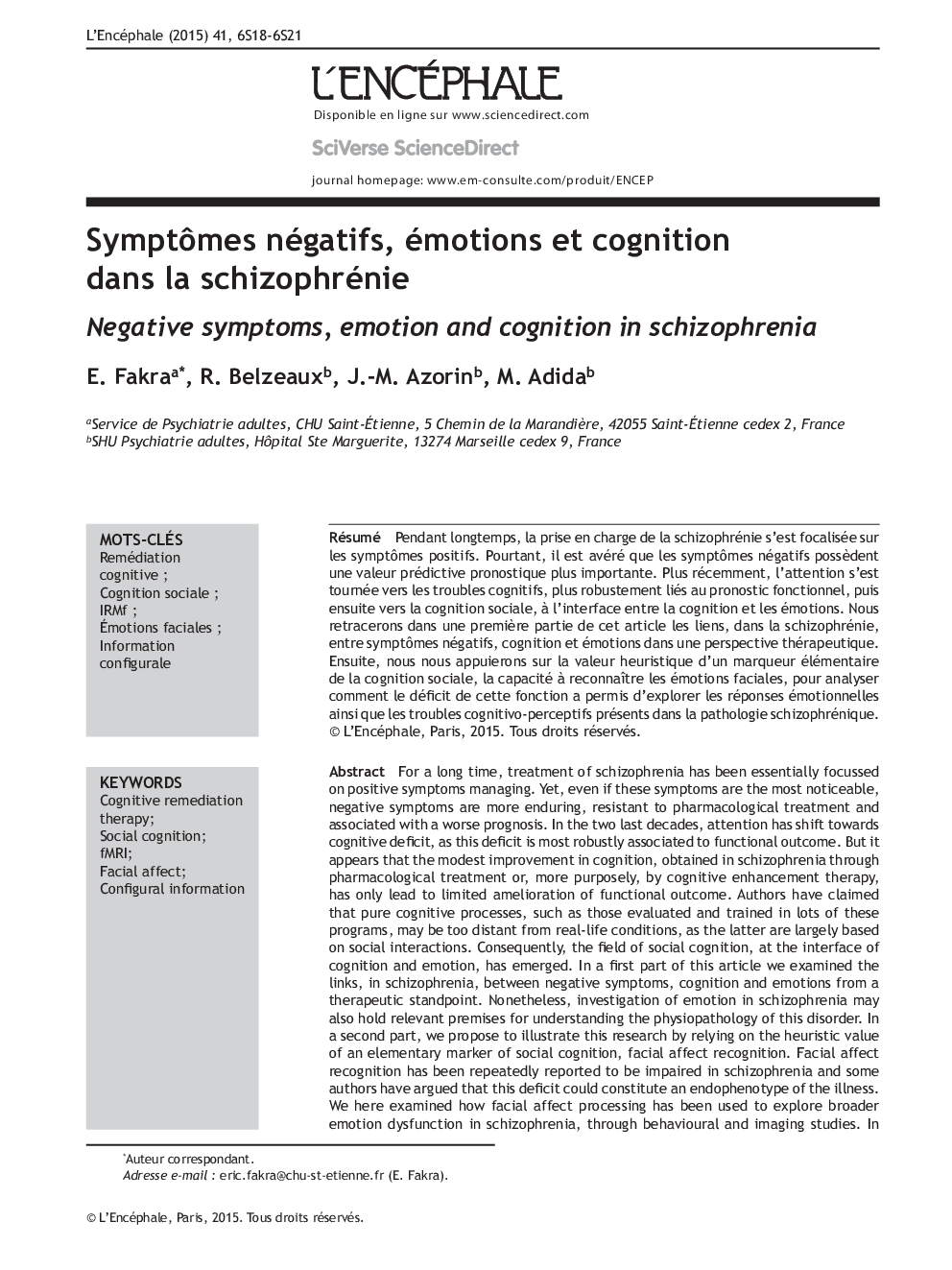| Article ID | Journal | Published Year | Pages | File Type |
|---|---|---|---|---|
| 4181528 | L'Encéphale | 2015 | 4 Pages |
Abstract
For a long time, treatment of schizophrenia has been essentially focussed on positive symptoms managing. Yet, even if these symptoms are the most noticeable, negative symptoms are more enduring, resistant to pharmacological treatment and associated with a worse prognosis. In the two last decades, attention has shift towards cognitive deficit, as this deficit is most robustly associated to functional outcome. But it appears that the modest improvement in cognition, obtained in schizophrenia through pharmacological treatment or, more purposely, by cognitive enhancement therapy, has only lead to limited amelioration of functional outcome. Authors have claimed that pure cognitive processes, such as those evaluated and trained in lots of these programs, may be too distant from real-life conditions, as the latter are largely based on social interactions. Consequently, the field of social cognition, at the interface of cognition and emotion, has emerged. In a first part of this article we examined the links, in schizophrenia, between negative symptoms, cognition and emotions from a therapeutic standpoint. Nonetheless, investigation of emotion in schizophrenia may also hold relevant premises for understanding the physiopathology of this disorder. In a second part, we propose to illustrate this research by relying on the heuristic value of an elementary marker of social cognition, facial affect recognition. Facial affect recognition has been repeatedly reported to be impaired in schizophrenia and some authors have argued that this deficit could constitute an endophenotype of the illness. We here examined how facial affect processing has been used to explore broader emotion dysfunction in schizophrenia, through behavioural and imaging studies. In particular, fMRI paradigms using facial affect have shown particular patterns of amygdala engagement in schizophrenia, suggesting an intact potential to elicit the limbic system which may however not be advantageous. Finally, we analysed facial affect processing on a cognitive-perceptual level, and the aptitude in schizophrenia to manipulate featural and configural information in faces.
Keywords
Related Topics
Health Sciences
Medicine and Dentistry
Psychiatry and Mental Health
Authors
E. Fakra, R. Belzeaux, J.-M. Azorin, M. Adida,
